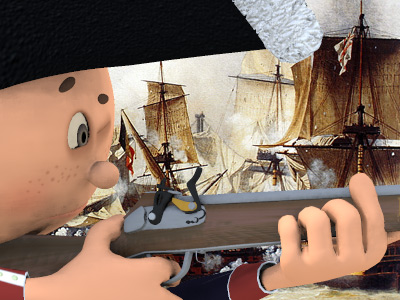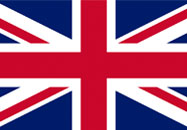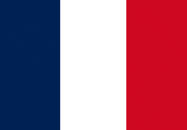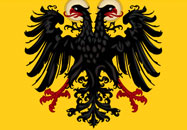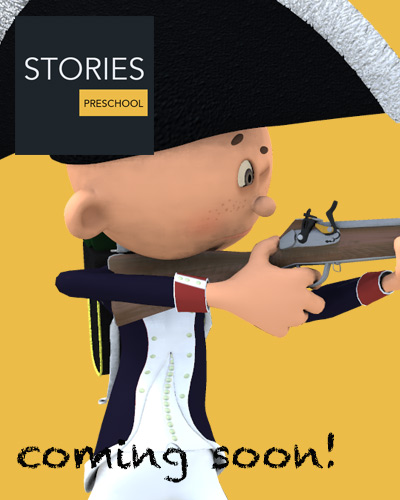Napoleonic Wars (1803-1815)
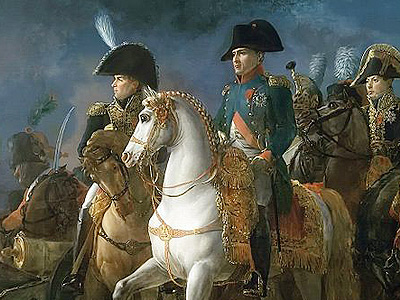
Political Effects
The Napoleonic Wars brought radical changes to Europe, but the reactionary forces returned to power and tried to reverse some of them by restoring the Bourbon house on the French throne. Napoleon had succeeded in bringing most of Western Europe under one rule. In most European countries, subjugation in the French Empire First French Empire, officially the French Republic, then the French Empire after 1809, also known as Napoleonic France, was the empire ruled by Napoleon Bonaparte, who established French hegemony over much of continental Europe at the beginning of the 19th century. It lasted from 18 May 1804 to 11 April 1814 and again briefly from 20 March 1815 to 7 July 1815. A series of wars, known collectively as the Napoleonic Wars, extended French influence to much of Western Europe and into Poland. brought with it many liberal features of the French Revolution including democracy, due process in courts, abolition of serfdom, reduction of the power of the Catholic Church, and a demand for constitutional limits on monarchs. The increasing voice of the middle classes with rising commerce and industry meant that restored European monarchs found it difficult to restore pre-revolutionary absolutism, and had to retain many of the reforms enacted during Napoleon's rule. Institutional legacies remain to this day in the form of civil law, with clearly defined codes of law—an enduring legacy of the Napoleonic Code.
First French Empire, officially the French Republic, then the French Empire after 1809, also known as Napoleonic France, was the empire ruled by Napoleon Bonaparte, who established French hegemony over much of continental Europe at the beginning of the 19th century. It lasted from 18 May 1804 to 11 April 1814 and again briefly from 20 March 1815 to 7 July 1815. A series of wars, known collectively as the Napoleonic Wars, extended French influence to much of Western Europe and into Poland. brought with it many liberal features of the French Revolution including democracy, due process in courts, abolition of serfdom, reduction of the power of the Catholic Church, and a demand for constitutional limits on monarchs. The increasing voice of the middle classes with rising commerce and industry meant that restored European monarchs found it difficult to restore pre-revolutionary absolutism, and had to retain many of the reforms enacted during Napoleon's rule. Institutional legacies remain to this day in the form of civil law, with clearly defined codes of law—an enduring legacy of the Napoleonic Code.
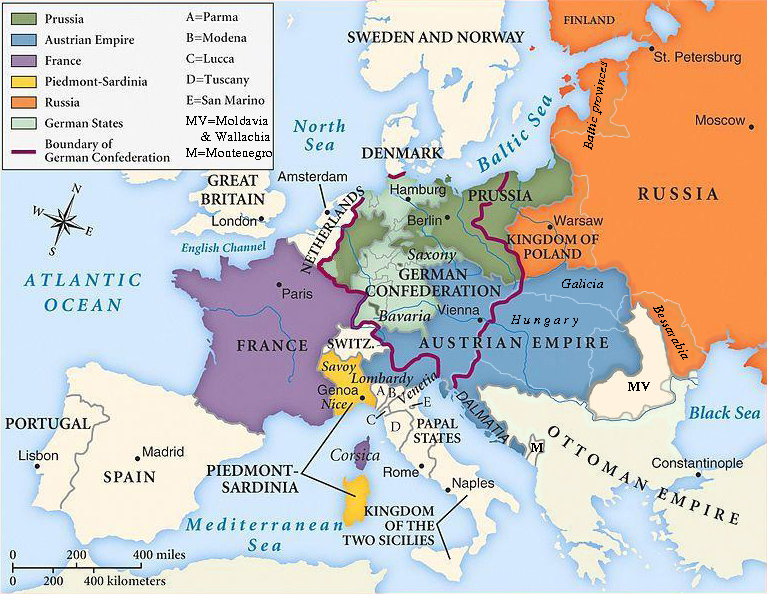
The national boundaries within Europe are set by the Congress of Vienna, 1815

The national boundaries within Europe are set by the Congress of Vienna, 1815
( Click image to enlarge)
France's constant warfare with the combined forces of the other major powers of Europe for over two decades finally took its toll. By the end of the Napoleonic Wars, France no longer held the role of the dominant power in Continental Europe, as it had since the times of Louis XIV, as the Congress of Vienna produced a "balance of power" by resizing the main powers so they could balance each other and remain at peace. In this regard, Prussia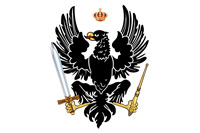 The Kingdom of Prussia was a German kingdom that constituted the state of Prussia between 1701 and 1918. It was the driving force behind the unification of Germany in 1871 and was the leading state of the German Empire until its dissolution in 1918. Although it took its name from the region called Prussia, it was based in the Margraviate of Brandenburg. Its capital was Berlin. was restored in its former borders, and also received large chunks of Poland and Saxony. Greatly enlarged, Prussia became a permanent Great Power. In order to drag Prussia's attention towards the west and France, the Congress also gave the Rhineland and Westphalia to Prussia. These industrial regions transformed agrarian Prussia into an industrial leader in the nineteenth century. Britain
The Kingdom of Prussia was a German kingdom that constituted the state of Prussia between 1701 and 1918. It was the driving force behind the unification of Germany in 1871 and was the leading state of the German Empire until its dissolution in 1918. Although it took its name from the region called Prussia, it was based in the Margraviate of Brandenburg. Its capital was Berlin. was restored in its former borders, and also received large chunks of Poland and Saxony. Greatly enlarged, Prussia became a permanent Great Power. In order to drag Prussia's attention towards the west and France, the Congress also gave the Rhineland and Westphalia to Prussia. These industrial regions transformed agrarian Prussia into an industrial leader in the nineteenth century. Britain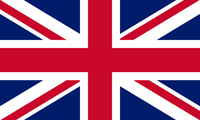 The United Kingdom of Great Britain and Ireland was a sovereign state in Northwestern Europe that comprised the entirety of the British Isles between 1801 and 1922. The United Kingdom, having financed the European coalition that defeated France during the Napoleonic Wars, developed a large Royal Navy that enabled the British Empire to become the foremost world power for the next century. emerged as the most important economic power, and its Royal Navy held unquestioned naval superiority across the globe well into the 20th century.
The United Kingdom of Great Britain and Ireland was a sovereign state in Northwestern Europe that comprised the entirety of the British Isles between 1801 and 1922. The United Kingdom, having financed the European coalition that defeated France during the Napoleonic Wars, developed a large Royal Navy that enabled the British Empire to become the foremost world power for the next century. emerged as the most important economic power, and its Royal Navy held unquestioned naval superiority across the globe well into the 20th century.
After the Napoleonic period, nationalism, a relatively new movement, became increasingly significant. This shaped much of the course of future European history. Its growth spelled the beginning of some states and the end of others, as the map of Europe changed dramatically in the hundred years following the Napoleonic Era. Rule by fiefdoms and aristocracy was widely replaced by national ideologies based on shared origins and culture. Bonaparte's reign over Europe sowed the seeds for the founding of the nation-states of Germany and Italy by starting the process of consolidating city-states, kingdoms and principalities. At the end of the war Denmark was forced to cede Norway to Sweden, but because Norway had signed its own constitution on 17 May 1814, Sweden was forced to fight for the right to own Norway. The resulting union between Sweden and Norway gave Norway more independence than under Denmark and ended with Norway becoming an independent country in 1905. The United Kingdom of the Netherlands created as a buffer state against France dissolved rapidly with the independence of Belgium in 1830.
The Napoleonic wars also played a key role in the independence of the Latin American colonies from Spain and Portugal. The conflict weakened the authority and military power of Spain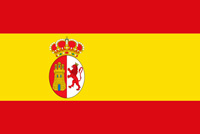 Spain or the Kingdom of Spain, is a country primarily located in southwestern Europe with parts of territory in the Atlantic Ocean and across the Mediterranean Sea. A major country of the Age of Discovery, Spain began the colonization of the New World in 1492 developing one of the largest empires in history and underpinned the emergence of a global trading system primarily fuelled by precious metals., especially after the Battle of Trafalgar. There were many uprisings in Spanish America, leading to the wars of independence. In Portuguese America, Brazil experienced greater autonomy as it now served as seat of the Portuguese Empire and ascended politically to the status of Kingdom. These events also contributed to the Portuguese Liberal Revolution in 1820 and the Independence of Brazil in 1822.
Spain or the Kingdom of Spain, is a country primarily located in southwestern Europe with parts of territory in the Atlantic Ocean and across the Mediterranean Sea. A major country of the Age of Discovery, Spain began the colonization of the New World in 1492 developing one of the largest empires in history and underpinned the emergence of a global trading system primarily fuelled by precious metals., especially after the Battle of Trafalgar. There were many uprisings in Spanish America, leading to the wars of independence. In Portuguese America, Brazil experienced greater autonomy as it now served as seat of the Portuguese Empire and ascended politically to the status of Kingdom. These events also contributed to the Portuguese Liberal Revolution in 1820 and the Independence of Brazil in 1822.
The century of relative transatlantic peace, after the Congress of Vienna, enabled the “greatest intercontinental migration in human history” beginning with "a big spurt of immigration after the release of the dam erected by the Napoleonic Wars." Immigration inflows relative to the US population rose to record levels (peaking at 1.6% in 1850-51) as 30 million Europeans relocated to the United States between 1815 and 1914.
Another concept emerged from the Congress of Vienna – that of a unified Europe. After his defeat, Napoleon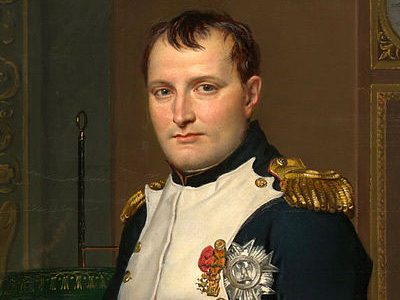 Napoleon Bonaparte (1769-1821), was a French military and political leader who rose to prominence during the French Revolution and led several successful campaigns during the French Revolutionary Wars. As Napoleon I, he was Emperor of the French from 1804 until 1814, and again in 1815. One of the greatest commanders in history, his wars and campaigns are studied at military schools worldwide. Napoleon Bonaparte » deplored the fact that his dream of a free and peaceful "European association" remained unaccomplished. Such a European association would share the same principles of government, system of measurement, currency and Civil Code. One-and-a-half centuries later, and after two world wars several of these ideals re-emerged in the form of the European Union.
Napoleon Bonaparte (1769-1821), was a French military and political leader who rose to prominence during the French Revolution and led several successful campaigns during the French Revolutionary Wars. As Napoleon I, he was Emperor of the French from 1804 until 1814, and again in 1815. One of the greatest commanders in history, his wars and campaigns are studied at military schools worldwide. Napoleon Bonaparte » deplored the fact that his dream of a free and peaceful "European association" remained unaccomplished. Such a European association would share the same principles of government, system of measurement, currency and Civil Code. One-and-a-half centuries later, and after two world wars several of these ideals re-emerged in the form of the European Union.
HISTORY
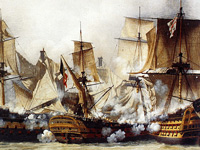
RESOURCES
This article uses material from the Wikipedia article "Napoleonic Wars", which is released under the Creative Commons Attribution-Share-Alike License 3.0.
© Stories Preschool. All Rights Reserved.
